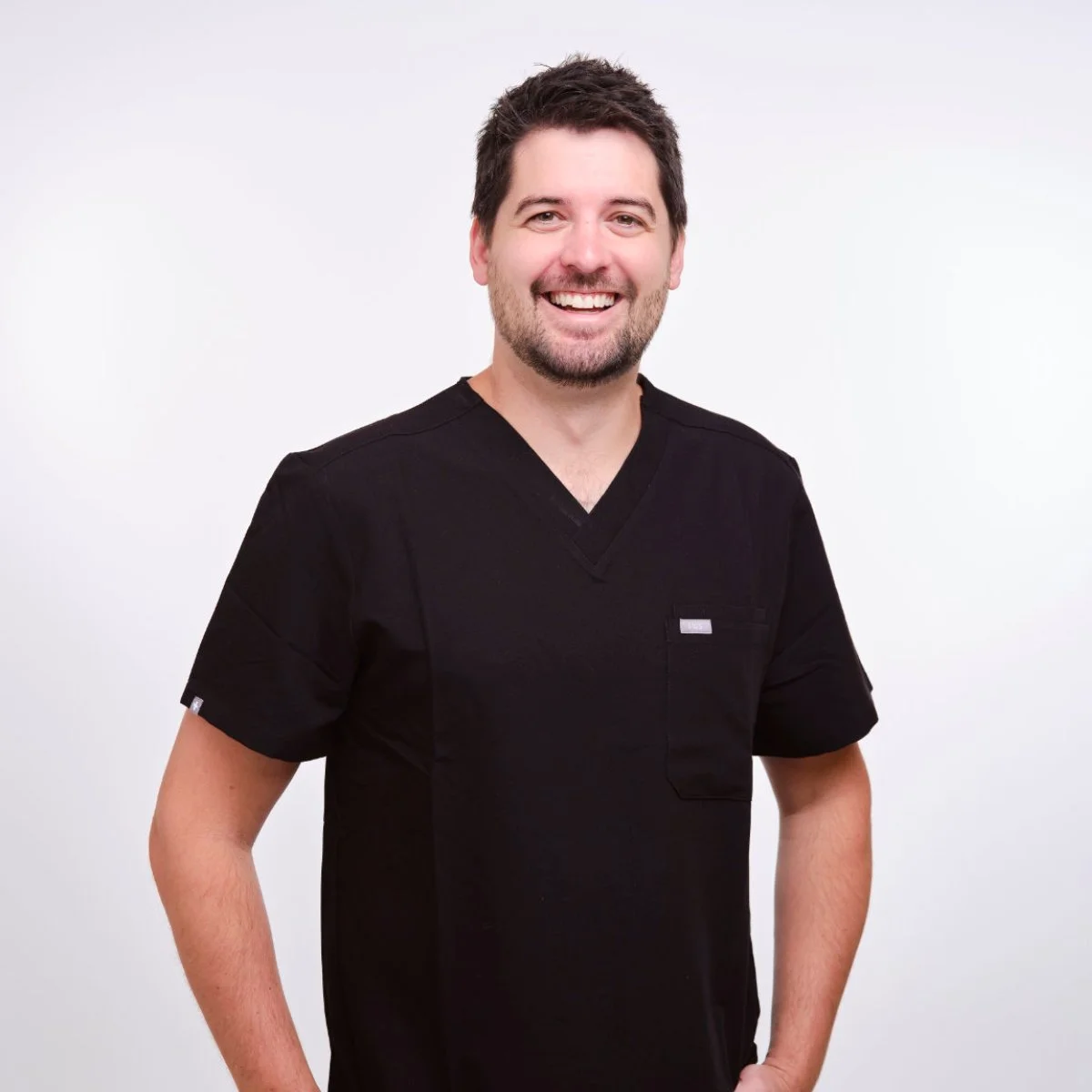Q&A with Dr. Chris: A Deep Dive into Skin Cancer Care and Prevention
Meet Dr Chris
At Shade Skin, we’re passionate about connecting patients with highly experienced doctors who combine medical precision with a personal, patient focused approach.
Dr Chris is a general practitioner with advanced surgical training and a special interest in skin cancer medicine. Having worked across several surgical specialties and completed advanced dermoscopy training, he now provides expert skin checks, mole assessments and skin cancer treatments with precision and care.
We sat down with Dr Chris to learn more about his background, approach to diagnosis, and his top advice for preventing skin cancer.
Q: Can you tell us a bit about your medical background and what led you to specialise in skin cancer?
Dr Chris:
After completing my postgraduate medical degree, I was initially drawn to surgical specialties. During my junior doctor year I worked across a range of fields including plastic surgery, orthopaedic surgery, hand surgery, endocrine surgery, and general surgery.
I also completed formal surgical training courses at the UWA Clinical Training and Evaluation Centre (CTEC). Although I ultimately decided against a full-time surgical career, I carried those procedural skills into general practice.
While working in large multidisciplinary clinics, I maintained a strong procedural focus through daily practice and internal referrals. My interest in skin cancer developed naturally from there. Once I had the surgical foundation, I completed advanced training in skin cancer detection and dermoscopy through the Skin Cancer College Australasia. This combination of surgical precision and diagnostic expertise allows me to deliver comprehensive, safe, and effective skin cancer care.
Q: How do you typically approach a new skin lesion or suspicious mole?
Dr Chris:
Because no two lesions are exactly the same, I rely on a structured, evidence based approach. For pigmented lesions (those with darker colours), I use the Chaos and Clues algorithm developed by Professor Cliff Rosendahl.
For non-pigmented lesions, I use another of his diagnostic systems, Prediction without Pigment. Both methods are internationally recognised for improving diagnostic accuracy and ensuring nothing is overlooked during a skin check.
Ultimately, every lesion is assessed with a combination of visual examination, dermoscopy and medical judgement. This structured process supports early detection, which is critical in successful treatment outcomes.
Q: What’s the most rewarding part of your job?
Dr Chris:
I genuinely enjoy educating patients during their skin checks. It’s rewarding when someone becomes engaged and interested as I explain why certain spots are normal or need closer attention.
There’s also immense satisfaction in giving patients peace of mind, whether that’s confirming a clear skin check or letting them know a skin cancer has been completely removed following excision.
Seeing that sense of relief and gratitude reinforces why patient centred care matters.
Q: What are the most important skin cancer prevention tips you give your patients?
Dr Chris:
Prevention starts with consistent, everyday habits. My top advice includes:
Apply sunscreen early and reapply often.: Use a broad-spectrum SPF 50+ sunscreen and reapply every two hours, or more frequently if swimming or sweating.
Don’t forget commonly missed areas: The neckline, ears, hands and feet are frequently overlooked.
Protect your skin year-round: UV exposure can still cause damage even on cloudy, cool or overcast days.
Wear protective clothing: Hats, sunglasses, and UPF-rated clothing all add important layers of protection.
Regular skin checks are just as important as prevention. Early detection saves lives.
Q: What role does skin tone play in risk and diagnosis?
Dr Chris:
Skin tone influences how easily you burn and your long-term risk of developing skin cancer. The Fitzpatrick Skin Type Scale helps classify this risk , from very fair skin that burns easily to darker skin that rarely burns.
People with fairer complexions typically have a higher lifetime risk due to increased sun damage. However, skin cancer can occur in all skin types, and it may be harder to detect in those with darker skin tones.
Regardless of your skin type, routine skin checks are essential. A thorough examination using dermoscopy allows accurate diagnosis across all skin tones.
Q: What do you like to do outside of work?
Dr Chris:
Outside of work, I enjoy cooking, baking, and spending time outdoors with my energetic dog. I also love catching up with friends.
Q: If you weren’t a doctor, what would you be doing?
Dr Chris:
I’d probably be a chef. My love of cooking and food runs deep, it’s another way of being creative and precise, just like medicine in many ways.
Q: What advice would you give your younger self, starting out in medicine?
Dr Chris:
I’d remind myself to wear sunscreen and moisturiser daily, and reassure myself that the endless study and training do get easier over time. Medicine is a lifelong journey, but it’s one that’s incredibly fulfilling.
Dr Chris’s approach to skin cancer prevention and early detection reflects Shade Skin’s philosophy of proactive, evidence-based care. His blend of surgical skill, diagnostic precision, and patient-centred communication ensures every patient receives the highest standard of care.
If it’s been more than 12 months since your last skin check, or if you’ve noticed a new or changing mole, it’s time to book a review.
Written by Dr Emily Alfonsi
MBBS, FRACGP, DRANZCOG
Medical Director, Shade Skin
Dr Emily is a skin cancer doctor with advanced training in diagnosis and treatment. She has personally detected and treated hundreds of skin cancers and is passionate about early intervention and patient education.
And Dr Chris Hall
MD, FRACGP
BHSc
Dr Chris specialises in skin checks, skin lesion removal with minimal scarring technique and scar management. He spent his early medical career gaining experience across multiple surgical specialties and completing surgical skills training at the Clinical Training & Evaluation Centre.

